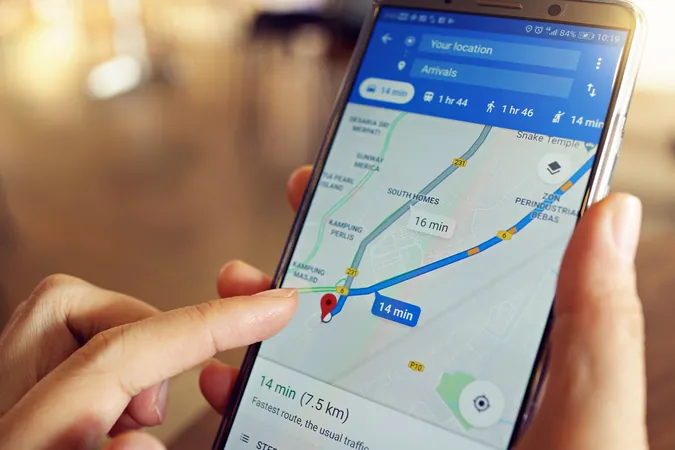
Google’s Timeline Update: A Cautionary Tale of Lost Memories and Privacy Concerns
2024-12-13
Author: Nur
Introduction
In a transformative move last year, Google announced a shift in the management of its Location History feature, now referred to as Timeline. The tech giant informed users that their location data would be saved locally on their devices, rather than on Google's servers. According to a spokesperson, this change was aimed at giving users increased control over their personal data, with the option to retain it indefinitely if they choose.
Privacy Implications
Privacy advocates welcomed this update as a proactive step in combating the increasing trend of geofence warrants—requests by law enforcement for location data from all individuals within a specified area during a defined timeframe. However, the reality surrounding this transition is more complex. Experts caution that simply disabling Timeline does not prevent Google from collecting data that could still reveal a user's whereabouts through other means, including their IP address and app activity.
Data Retention Changes
In addition to storing Timeline data locally, Google altered the default data retention period. The retention for both Timeline/Location History and Web & App Activity has been shortened from 18 months to just three months, unless users opt out of this auto-deletion feature. Furthermore, if users decide to store Timeline data in the cloud, it will be encrypted to enhance security and privacy.
User Experiences and Concerns
Despite these announcements, many users have encountered unexpected challenges with the migration of their data, leading to widespread frustration. Google has sent out notifications with varying deadlines, urging users to download their Timeline data via Google Takeout before it becomes permanently deleted. This has resulted in numerous reports of missing data, affecting people's ability to recall personal memories and experiences associated with locations they've visited.
A Personal Story
A particularly poignant example comes from an anonymous user who suffered a traumatic brain injury and has relied heavily on Google Timeline to navigate his memory challenges. He expressed grave concern that if the default options had not allowed for sufficient data retention, it would have significantly impacted his ability to reconstruct his past—a worrying reminder of the delicate balance between privacy reform and personal accessibility.
Wider Discussion
Discussions among affected users on forums and social media indicate that this is not an isolated incident. Many are sharing their distress over losing vital location history, which they utilized for various practical purposes, such as tracking expenses for tax reports or recalling cherished moments with loved ones who have passed away.
Conclusion
Amidst criticisms, it remains unclear whether Google's changes stem from a genuine commitment to user privacy or an attempt at mitigating potential legal ramifications surrounding customer location data. However, one thing is certain: the way Google has communicated these transitions and the associated consequences has left many users feeling blindsided.
In the evolving landscape of data privacy, Google must balance user autonomy with transparency and communication, ensuring that users are aware of how their data is managed and protected. As more people share their experiences, one thing stands out—there has to be a better way to safeguard individual memories while still respecting privacy rights.
Will Google take heed of these user concerns? Only time will tell, but for now, many users feel a sense of loss over their Timeline data, raising the urgent question: How much do we truly control our own digital footprints?


 Brasil (PT)
Brasil (PT)
 Canada (EN)
Canada (EN)
 Chile (ES)
Chile (ES)
 España (ES)
España (ES)
 France (FR)
France (FR)
 Hong Kong (EN)
Hong Kong (EN)
 Italia (IT)
Italia (IT)
 日本 (JA)
日本 (JA)
 Magyarország (HU)
Magyarország (HU)
 Norge (NO)
Norge (NO)
 Polska (PL)
Polska (PL)
 Schweiz (DE)
Schweiz (DE)
 Singapore (EN)
Singapore (EN)
 Sverige (SV)
Sverige (SV)
 Suomi (FI)
Suomi (FI)
 Türkiye (TR)
Türkiye (TR)